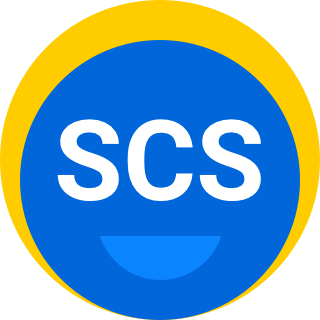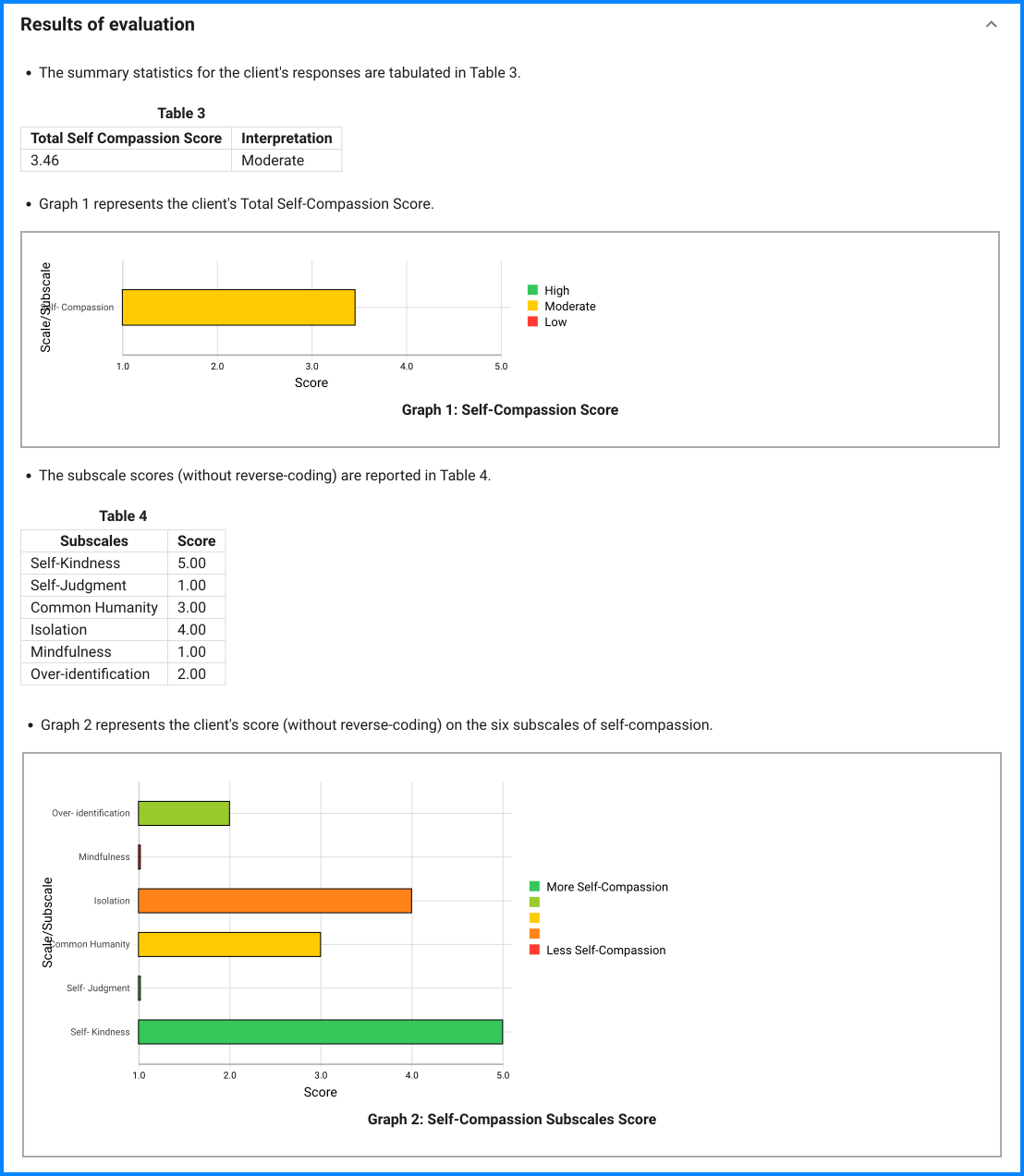Self-Kindness Items: 5, 12, 19, 23, 26 Self-Judgment Items (reverse scored): 1, 8, 11, 16, 21 Common Humanity Items: 3, 7, 10, 15 Isolation Items (reverse scored): 4, 13, 18, 25 Mindfulness Items: 9, 14, 17, 22 Over-identification Items (reverse scored): 2, 6, 20, 24
To reverse score items (1=5, 2=4, 3=3, 4=2, 5=1).
To compute a total self-compassion score, first reverse score the negative subscale items - selfjudgment, isolation, and over-identification. Then take the mean of each subscale, and compute a total mean (the average of the six subscale means).
When examining subscale scores, higher scores on the self-judgment, isolation and over-identification scale indicate less self-compassion before reverse-coding, and more self-compassion after reverse coding. You can choose to report subscale scores with or without reverse-coding, but these three negative subscales must be reverse coded before calculating a total self-compassion score.
Note that the scoring procedures are slightly different than that used in the original scale article (Neff, 2003), in which items were totaled rather than averaged. However, it is easier to interpret the scores of the total mean is used and most researchers currently report total SCS scores on a five-point scale.
There are no clinical norms or scores which indicate that an individual is high or low in self-compassion. Rather, SCS scores are mainly used in a comparative manner to examine outcomes for people scoring higher or lower in self-compassion.
As an ad hoc rubric, however, you can consider scores 1.0-2.49 to be low, between 2.5-3.5 to be moderate, and 3.51-5.0 to be high. When trying to determine whether self-compassion levels are high or low relevant to a particular sample, some researchers use a median split.



